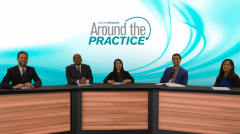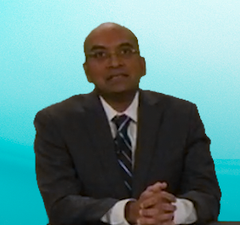
SUNLIGHT and FRESCO-2 Trials in Refractory Colorectal Cancer
An overview of the SUNLIGHT and FRESCO-2 studies in the refractory colorectal cancer space.
Episodes in this series

Transcript:
Cathy Eng, MD, FACP, FASCO: Dr Dasari, we talked about the PARADIGM trial (NCT02394795), and we’ve been talking a lot about tucatinib and T-DXd [trastuzumab deruxtecan], what about patients who are seeking a third-line option who are not HER2+ [human epidermal growth factor receptor 2-positive]? Can you tell us a little bit about the SUNLIGHT trial (NCT04737187), which was recently presented, and what this means in regard to the current sequence of therapy and paradigm of care?
Arvind Dasari, MD, MS: Yes, so the SUNLIGHT trial was a phase 3 trial building on a prior phase 2 trial that was randomized and that showed the benefit of adding bevacizumab to TAS-102 in the third-line setting. The SUNLIGHT trial also randomized patients who received 1 to 2 prior lines of therapy to TAS-102 vs bevacizumab. About 500 patients were randomized and the primary end point was overall survival. And the study did meet at the primary end point with a hazard ratio around 0.6 with improvement in overall survival from about 7½ months to about 10.8 months, an improvement of about 3 months. And progression-free survival had improved from about 2.5 months or so to 5.6 months or so. So, more than double. So, really exciting data. And I think this has already in many ways become a standard of care in the third-line setting for these patients because both these drugs are already available and the phase 2 data were already out there.
Cathy Eng, MD, FACP, FASCO: Primarily in the United States.
Arvind Dasari, MD, MS: In the US, so I think we were already doing that. So, it validates the practice.
Cathy Eng, MD, FACP, FASCO: Tying into that, if you don’t mind commenting on your trial that you recently presented, FRESCO-2 (NCT04322539), because it tries to capture some of the similar patient population. And for somebody who may not be familiar with that trial, do you want to comment on that very briefly, as well?
Arvind Dasari, MD, MS: Yes. So, FRESCO-2 was a randomized phase 3 trial of fruquintinib, which is an oral VEGF [vascular endothelial growth factor] inhibitor selectively against VEGF receptors 1, 2, and 3. And the main difference between FRESCO-2 and SUNLIGHT was that the patients who were enrolled in FRESCO-2 were much more heavily pretreated, with a median number of prior lines of therapy around 5. And that included TAS-102 and or regorafenib, and almost everybody also got an anti-VEGF antibody and anti-GFR [glomerular filtration rate] antibody, if appropriate, and also other targeted therapies. The primary end point was overall survival. And the study did meet its primary end point with a hazard ratio of around 0.6. And these data are being submitted to the FDA and the EMA [European Medicines Agency] for potential approval of the drug.
Cathy Eng, MD, FACP, FASCO: Thank you so much for that update.
Transcript edited for clarity.
Newsletter
Stay up to date on recent advances in the multidisciplinary approach to cancer.









































